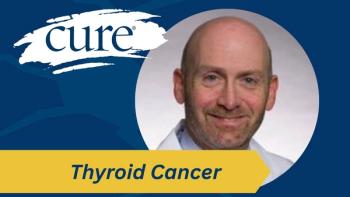
- Rare Cancers Special Issue
- Volume 1
- Issue 1
New Therapies Making Progress in Rare Cancers
Progress in treating rare cancers represents the most significant oncology advance of last year, ASCO says.
Because of headway in the development of treatments for patients with thyroid and other difficult-to-treat rare cancers, the American Society of Clinical Oncology (ASCO) selected progress in treating rare cancers as its 2018 Advance of the Year.
ASCO made the announcement in January as part of “Clinical Cancer Advances 2019: ASCO’s Annual Report on Progress Against Cancer.” The update on oncology treatment highlights the most impactful clinical research milestones and policy developments achieved over the past year.
ASCO’s past president, Dr. Monica M. Bertagnolli, said in a press release that federal investment is critical for furthering progress in the cancer space as a whole but especially in rare cancers, where there is a great deal of unmet need. Rare cancers account for approximately 20% of all cancers diagnosed annually in the United States.
“It’s exciting to see such substantial progress over the course of a single year, particularly against rare cancers,” Bertagnolli said. “With U.S. cancer cases set to rise by roughly a third over the next decade, we must continue to advance research that saves lives. ... We need to prioritize federal funding of cancer research in the years to come. Americans are counting on it.”
In January 2018, the Food and Drug Administration (FDA) approved the radioactive agent Lutathera (lutetium Lu 177 dotatate) for treating patients with somatostatin receptor-positive gastroenteropancreatic neuroendocrine tumors (GEP-NETs). These tumors develop in the pancreas or elsewhere in the gastrointestinal tract, forming from cells that make hormones.
The agency approved the targeted drug combination of Tafinlar (dabrafenib) and Mekinist (trametinib) for patients with BRAF-mutated anaplastic thyroid carcinoma — the first treatment in almost 50 years for the disease — in May 2018. This unusually aggressive, fast-growing type of thyroid cancer tends to spread quickly to other parts of the body and is typically resistant to chemotherapy. Anaplastic thyroid carcinomas that carry a BRAF gene mutation may be sensitive to the drug combination: Tafinlar inhibits the activity of the mutated proteins made by the BRAF gene, and Mekinist interferes with the MEK protein, which is part of the cell signaling pathway that includes BRAF.
There were still more advances:
- The targeted drug Nexavar (sorafenib), a tyrosine kinase inhibitor, was shown, for the first time, to improve progression-free survival (the length of time after treatment when disease does not progress) in patients with desmoid tumors. These noncancerous masses form in the connective tissue of the abdomen, arms and legs. Nexavar helps block the development of blood vessels that desmoid tumors need to grow.
- The targeted drug Herceptin (trastuzumab), originally approved to treat breast cancer, was found to slow the progression of HER2-positive uterine serous carcinoma, a rare and aggressive form of endometrial cancer. Herceptin blocks the activity of the protein HER2, a growth factor receptor overexpressed by some cancers.
- The experimental CSF1R inhibitor Turalio (pexidartinib) became the first agent to show promise in patients with tenosynovial giant cell tumors, which form in the joints or tendon sheaths of young adults and, although not malignant, can be debilitating. The drug prevents inflammation and boosts activity of the immune system’s T cells against the condition.
NETTER-1 Trial Leads to Approval in GEP-NETs
Lutathera received the FDA’s OK based on positive results from two clinical trials. The first, the phase 3 NETTER-1 trial, compared Lutathera with long-acting high-dose versus lower- dose octreotide (an inhibitor of some hormones) and showed that using Lutathera led to a 79% reduced risk of disease progression or death.
Researchers also evaluated Lutathera’s effectiveness in a subset of 360 patients with GEP-NETs who were enrolled in the ERASMUS Medical Center study. Initially, this experimental drug was provided through expanded access at one trial site based in the Netherlands. The overall response rate (the proportion of patients whose tumors had any response to the drug) was 16% (58 patients), including three complete responses (the disappearance of any signs of cancer due to the treatment).
First Anaplastic Thyroid Cancer Drug in 50 Years
The FDA approval of Tafinlar plus Mekinist for treating patients with inoperable or metastatic anaplastic thyroid cancer driven by a BRAF V600E mutation was based on positive results from an open-label clinical trial (in which patients and their doctors know which treatment is being given). Among 23 patients who could be evaluated, 57% had a partial response and 4% achieved a complete response. Of these 14 responders, 64% (nine) were not found to have significant tumor growth for at least six months.
In previously published data, seven in 10 patients with locally advanced or metastatic BRAF V600E-mutated anaplastic thyroid cancer responded to the combination. In that study, the overall response rate was 69% (11 of 16), with one complete and 10 partial responses. Seven patients were showing continued response to the combination when the analysis took place.
Tafinlar and Mekinist are also approved by the FDA to be used alone or together in patients with BRAF V600 mutation-positive melanoma. The agents also can be used in combination for the treatment of patients with BRAF V600E mutation-positive, metastatic non-small cell lung cancer.
First Drug to Delay Desmoid Tumor Progression
In a phase 3 trial (NCT02066181), Nexavar delayed the time after treatment until disease worsened in patients with desmoid tumors whose disease had been progressing, resisting treatment or producing symptoms.
Researchers randomly assigned 87 patients to get 400 milli- grams once daily of either oral Nexavar or placebo. Patients receiving placebo could cross over to the Nexavar group if their disease progressed.
At a median follow-up of 27.2 months, the two-year progres- sion-free survival rate in the Nexavar group was 81% compared with just 36% in the placebo group. Prior to crossover, the overall response rate in those who received Nexavar was 33% versus 20% in those who were given placebo. Further, responses happened faster in the Nexavar group than in the placebo group, taking a median of 9.6 months versus 13.3 months, respectively.
Nexavar has not yet been approved to treat this rare form of sarcoma, although it is approved for patients with certain types of advanced kidney, liver and thyroid cancers.
Slowing A Rare Endometrial Cancer’s Progression
Findings from a small randomized trial showed that the use of Herceptin plus chemotherapy resulted in a more than 50% improvement in progression-free survival in patients with HER2-positive uterine serous carcinoma compared with chemotherapy alone.
The median progression-free survival increased to 12.6 months with the addition of Herceptin from eight months with only chemotherapy. Further, patients with advanced disease experienced a twofold increase in median progression- free survival, going from 9.3 months with chemotherapy to 17.9 months with added Herceptin.
A preliminary survival analysis reported at the 2018 Society of Gynecologic Oncology Annual Meeting on Women’s Cancer demonstrated a trend favoring the Herceptin group, which seemed greater for those with more advanced disease and those who had received the combination as initial systemic therapy.
Turalio Shows Promise in Giant Cell Tumor
In results of the phase 3 ENLIVEN trial, oral Turalio showed promise in patients with tenosynovial giant cell tumor. The analysis was based on central review of magnetic resonance imaging scans.
Patients were randomized to get 1,000 milligrams of either Turalio or placebo daily for two weeks followed by 800 milligrams daily for 22 weeks. After completing part one, participants had the option to continue into an open-label Turalio extension. Of the 120 patients treated, 61 received Turalio and 59 placebo. Overall response rate was 39.3% in the Turalio group versus 0% in the placebo group at the end of part one. After a median six-month follow-up, none of the responders experienced disease progression.
Liver toxicities occurred more often in those who received Turalio. Eight patients discontinued treatment with the agent because of side effects; four experienced serious nonfatal side effects with increased bilirubin (which can indicate liver problems or excessive destruction of red blood cells), with one case lasting around seven months. Other side effects included changes in hair color, vomiting, fatigue, dysgeusia (distorted sense of taste) and swelling around the eyes.
The researchers concluded that, despite these side effects, Turalio offers a relevant treatment option for which the benefits outweigh the side effects for certain patients with this rare cancer of the joints.
On May 15, the FDA’s Oncologic Drugs Advisory Committee recommended that the agency approve Turalio to treat adults with symptomatic tenosynovial giant cell tumor. The FDA approved the drug on Aug. 2.
ASCO Pinpoints Key Areas of Research
For the first time, ASCO identified priorities for future research efforts in oncology, including:
- Identifying tests (or assays) that better predict response to immunotherapies.
- Determining which patient groups will derive the most benefit from postoperative treatment.
- Testing, in solid tumors, of advances made with cellular therapies.
- Exploring more precision medicine approaches in pediatric cancers.
- Improving care for older adults with cancer.
- Boosting access to clinical trials.
- Minimizing the long-term consequences of cancer treatment.
- Reducing obesity and its impact on cancer incidence and patient outcomes.
- Developing strategies to identify and treat those with premalignant lesions.
“These priorities represent our vision for finding the next generation of cancer cures and reducing cancer’s impact on patients’ lives,” Dr. Richard L. Schilsky, senior vice president and chief medical officer of ASCO, said in a press release.
Articles in this issue
over 6 years ago
Making It Personal With Waldenstrom's Macroglobulinemiaover 6 years ago
Hormones Gone Mad in a Rare Type of Ovarian Cancerover 6 years ago
The Truth About Implantsover 6 years ago
Seeking Immunity: Exploring Kaposi's Sarcomaover 6 years ago
Blowing a Fuse: Fighting NTRK Gene Fusions in Cancerover 6 years ago
A Rare Opportunity for Patients With Brain and Spinal Cancers



